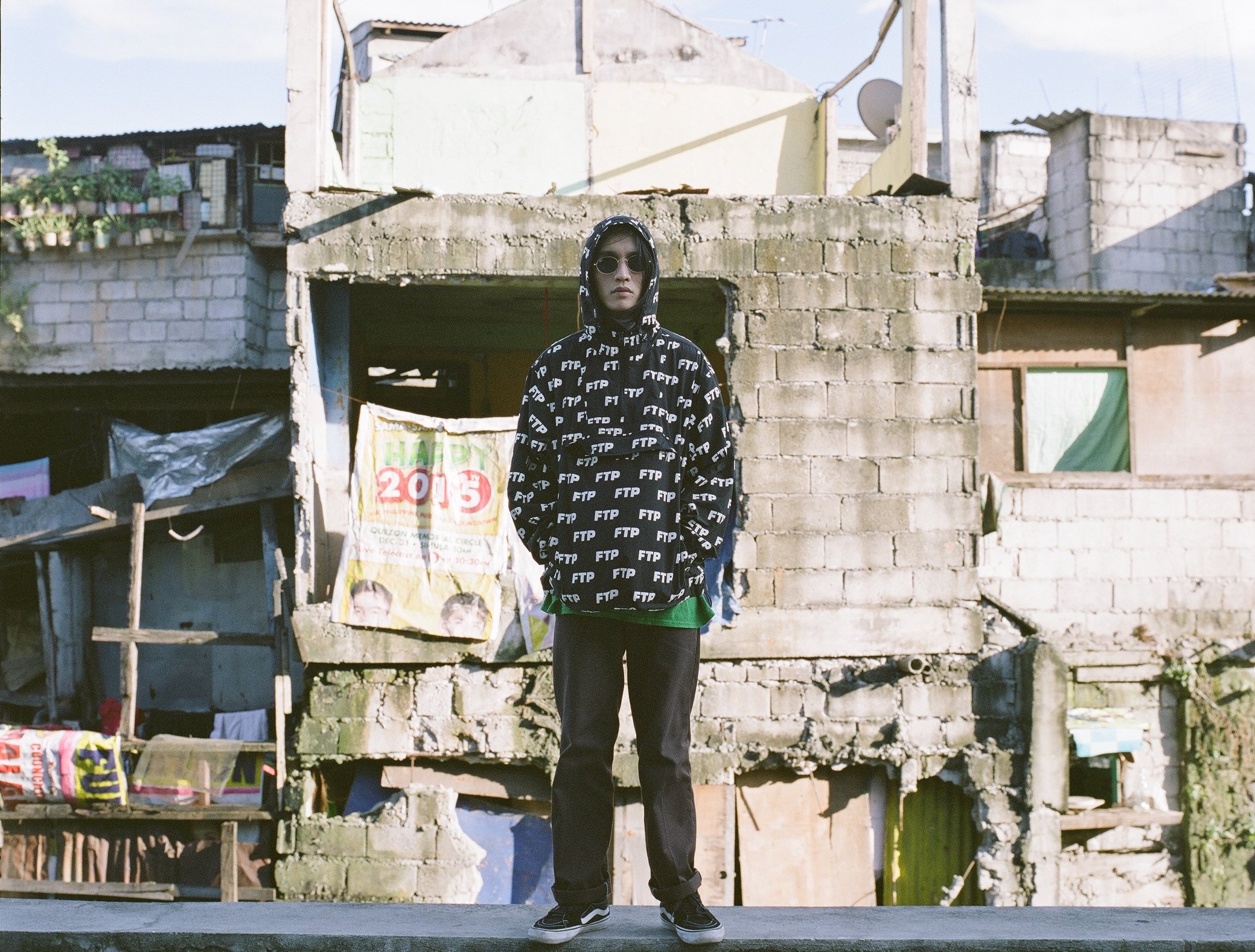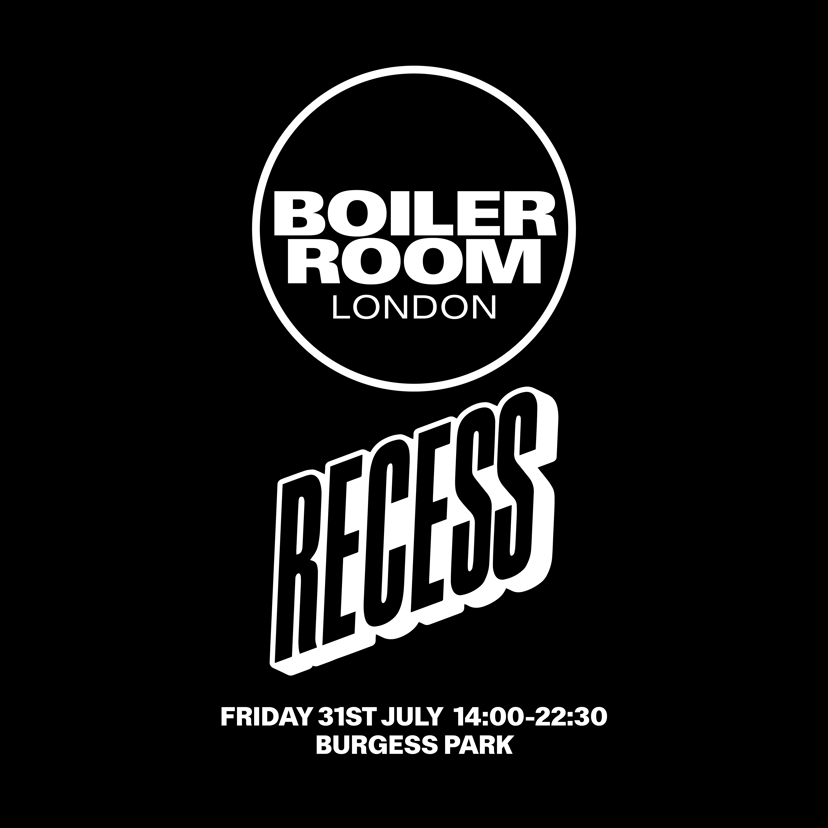
Eyedress: Psychedelic Beats from the Manila Streets
Idris Vicuña opens up to Oli Warwick about his reflective new album for Lex Records, staying centred in a chaotic city, and young Filipino street rappers.
Manila hangs heavy in the mind of Idris Vicuña. As Eyedress, his experiences of life in the Philippines capital fuel his songwriting, and there’s a lot of energy to draw on, both personal and political. Since President Rodrigo Duterte declared open season on vigilante killings of drug dealers and addicts when he came to power in 2016, a shocking, spiraling death toll and climate of fear and repression has plagued the Philippines, most acutely in the densely populated capital.
Vicuña has a broader perspective on the world than most of his fellow city-dwellers. From the age of six to 15 he lived in America before moving back to Manila with his family. He soaked up the influence of punk in his high school years, but it was when he returned to his birthplace that he discovered hip-hop. After his band Bee Eyes started to splinter, Vicuña had the chance to develop himself as a solo artist, moulding an intimate, lo-fi sound that married dusty samples with sweet songwriting. Capitalising on the global reach of the blogosphere, his homemade videos eventually caught the ear of XL Recordings sublabel Abeano.

Despite getting dropped after a run of singles in 2014, Vicuña bounced back thanks to the patronage of Scott Herren (aka Prefuse 73) and a recommendation to Lex Records. The UK hip-hop and leftfield label was a natural fit for Vicuña’s roughshod vignettes, and 2017’s Manila Ice LP found him striking into more song-based territory after the wild sound palette of his debut, Shapeshifter.
A lot has changed in Vicuña’s life over the course of his back catalogue to date – after living through his self-confessed wild days, the responsibility of fatherhood and the intense socio-political climate in Manila has found him adopting a more moderate lifestyle. His songwriting has matured in kind, and his new album, Sensitive G, marks his most focused work to date. At times achingly revealing and elsewhere fuelled by righteous anger, it’s as much about his own dark times as it is about the darkness he’s confronted with on a daily basis.
As part of our Contemporary Scenes campaign, we talked to Vicuña about Sensitive G, the intensity of life in the Philippines, and how that feeds into his craft.

Having grown up in America and then returning to Manila, did it feel like you came back with a broader musical outlook?
I did at first, and then living here kinda humbled me. Filipino culture is usually just drinking and doing family stuff. It's very conservative. If you wear tight pants you're [seen as] gay or if you have pink hair and you're walking down the street people really laugh at you. Their minds are still barely opening. I guess it's because it's mainly Catholic here, so people really fear being different.
That must have a powerful impact in terms of gigs, clubs and environments that encourage individuality and creative expression...
It does add weight to just being expressive because you don't wanna be offensive. Like for example, I made a design for a sweater that said ‘Couples For Satan.’ It was just a joke, because here I always see ‘Couples For Christ’ stickers on cars, and then I just made a flip of it and showed it to my friend and he's like, ‘Yo man, I can't actually wear that in front of my mom.’ For me it's just a drawing, but they take that stuff seriously. At first I enjoyed freaking people out, but now I'm trying to get rid of that edginess.
Do you think you would have still found a way towards the music you're making today if you had just grown up in the Philippines?
I wouldn't have been as ambitious as I am today if I’d lived in America. When I moved back here I felt like I could be more than what I always thought I'd be, which was just working at Starbucks to pay rent or something. A lot of things had to happen. I didn't go to college and my parents couldn't really afford to enrol me so my best friend told me one time, 'Just make music your job.’

Is it easier to stand out musically in the Philippines compared to the US?
If I was still in the US I'd be like all the garage rocker dudes I went to school with. They liked '60s psychedelic and punk. When I moved back to Manila, it broadened my mind to hip-hop beats. I wouldn't have gotten into any of that stuff if I hadn't moved here. There's kinda this hip-hop vibe here. All my friends rap. Kids on the street rap. A street kid will go up to you and be like, ‘Yo let me get 10 pesos,’ then he'll rap for you and he'll show off, and you'll be like, ‘Alright, here you go.’ The street kids here, they're incredible. You could make a movie about them, there's so many.
How did things progress from starting out to making connections with labels like XL and Lex?
From this urge to get my stuff out there, we started making videos and I would send them to blogs. One of the blogs that shared my videos was run by a guy that ran an imprint on XL. They called me and it felt unreal, but they were just like, ‘We want to sign you and bring you to London.’ I was still a teen. Things didn't work out with XL, and I got with Lex because of Prefuse 73. He's a legend. He said he wanted to make music, and then he asked me, ‘Do you have a label?’ He put me in touch with Lex, and two weeks later they emailed me and offered me a deal. It was just in time before my daughter was born, so it felt like a blessing. After XL dropped me I was really hurt as an artist, and then when Lex picked me up I was like, ‘Oh man, I have another chance and I just wanna do my best.’
Am I right in thinking signing to Lex coincided with you changing your lifestyle?
When I found out I was gonna be a dad, I knew what I had to change. It took me two years to actually sort myself out, but it was also a big self-discovery process. I think a lot of the music I've been putting out lately is kinda confronting all that.
How did you approach Sensitive G compared to your last album, Manila Ice?
I would just be in my studio. I’d lay the drums down first and either strum chords or pluck something. It usually starts out with guitar, some sort of chord progression on the keys. I just record. Sometimes I'll do a song in one take. Those are the magic moments. I knew how I wanted Sensitive G to sound. Manila Ice I was trying to put all the stuff that I like together, but then on this album I was trying to be more strict and recreate stuff that I grew up listening to.

Maybe people associated you with beats and hip hop, but it seems you're more focused towards songwriting and indie/punk rock with each release.
Yeah, I really got into just making songs. It's just what I'm trying to do. I just want to be some singer songwriter dude and I try to make documentary films too. My ultimate idol is Vincent Gallo. He's an actor, he's got an album on Warp, he's made some movies. They're not all the best, but it's sick that he did all of that shit. That's cool to me.
**Some of the lyrical content on the album is pretty raw – “Cocaine Sunday” seems like you're opening up about a tough period in your life. **
Jeez. That one was the toughest song. It was a really tough time, and I had to make that song to free myself, too. Now that it's all out there, people are going to know all the shit that I've been going through. I don't really talk to my friends about these things. I'm not gonna do this on the next album.
Is it a risk to be laying some of these things bare given the intensity of what's going on in the Philippines right now?
I don't know - we're allowed to express ourselves. I'm not saying, ‘Fuck you’ to anyone. I'm just sharing where I stand. Not necessarily waving the middle finger from where I stand either. This is what I believe in, and this is the stuff that I had to go through to be a better person.
Given the heaviness of what you're talking about on the album, your music always has a hopeful, romantic mood to it. Why does it make sense to you to have that emotional lilt in your music?
I don't know. I was a sweet kid and I used to write love letters and that's how my parents raised me, to be like a ‘get flowers for your girl’ type of kid.

On the flip side, “No Love In The City” and “No Fun” link to your punk rock roots. Were you not tempted to explore that avenue more given the heaviness of your environment in Manila?
That kind of music is very dangerous. There's just so much at risk if I made a whole album like that. There's just so much to expose. It's not that I'm not gonna make punk music. I'm paranoid now, just thinking about all the stuff going on here, and the things that I have out there. I feel very vulnerable. I've changed.
As your reputation rises and you get more opportunities overseas, does it ever make you think about leaving Manila?
That's always been my goal. You can only live in a place for so long and I didn't necessarily grow up here when I was a kid, so there's this part of me that feels like I need to be either in America or maybe London, cos my daughter's British. Why would I want to stay here? It's taught me a lot, and I wouldn't be who I am today if I didn't live here, but it's crazy man. I can't just keep being OK with all this crazy shit, especially now that I've seen the other side of the world more often.
Interview by Oli Warwick
The new Eyedress LP, Sensitive G, is out Nov 16 on Lex Records + US fans can catch him on a 15-date tour here .
A part of Contemporary Scenes, a BR series uncovering underground collectives, artists and subcultures from across the world






























